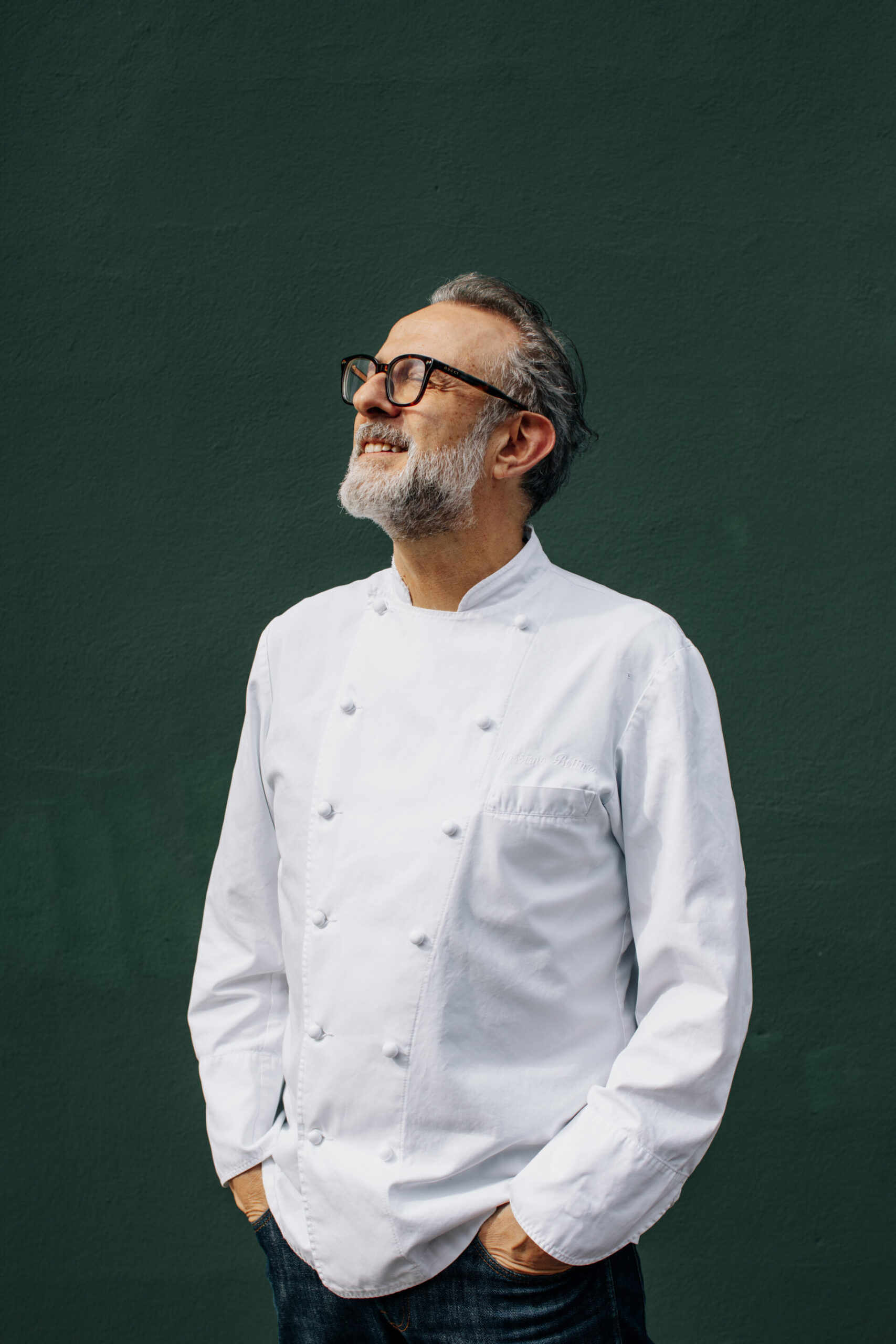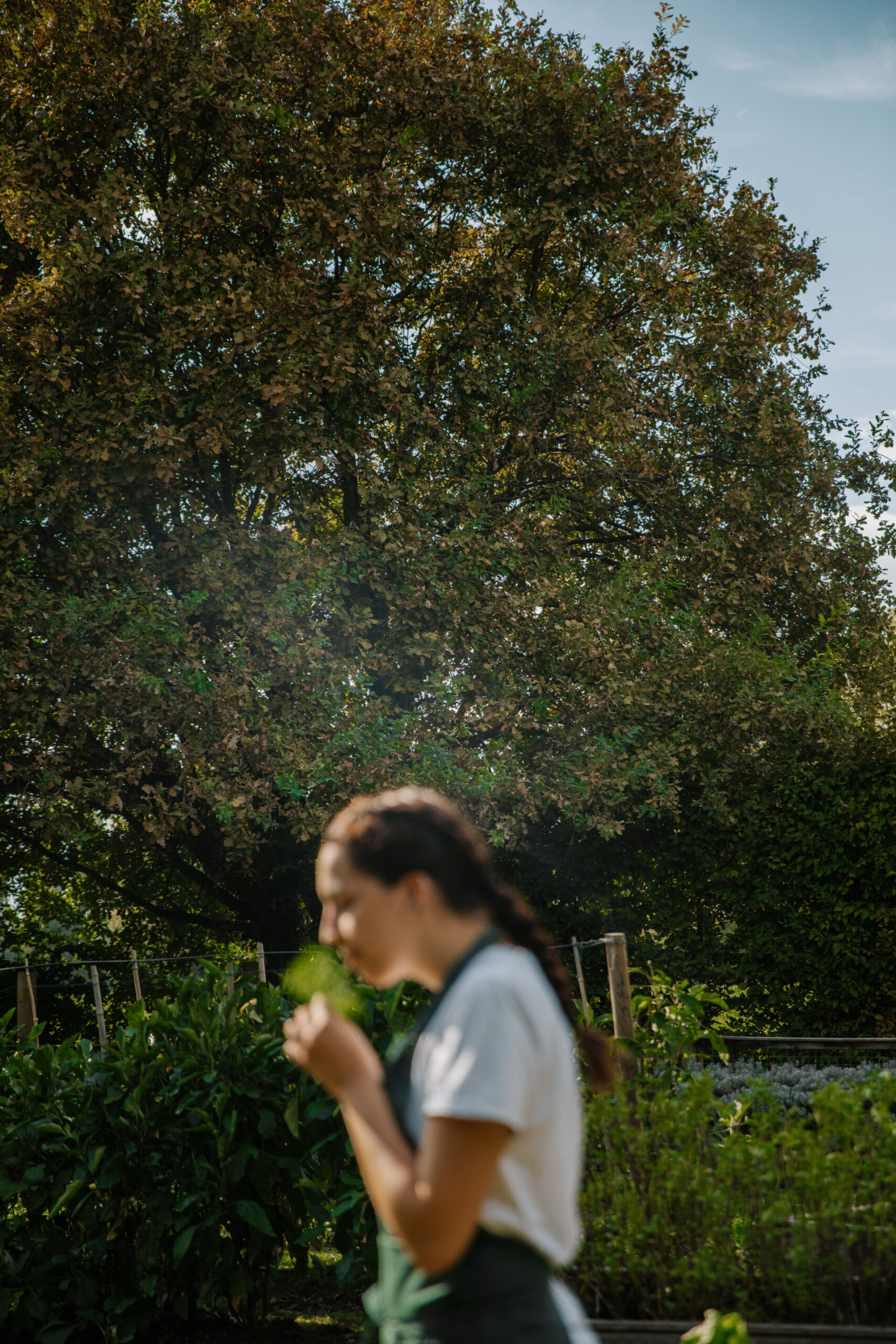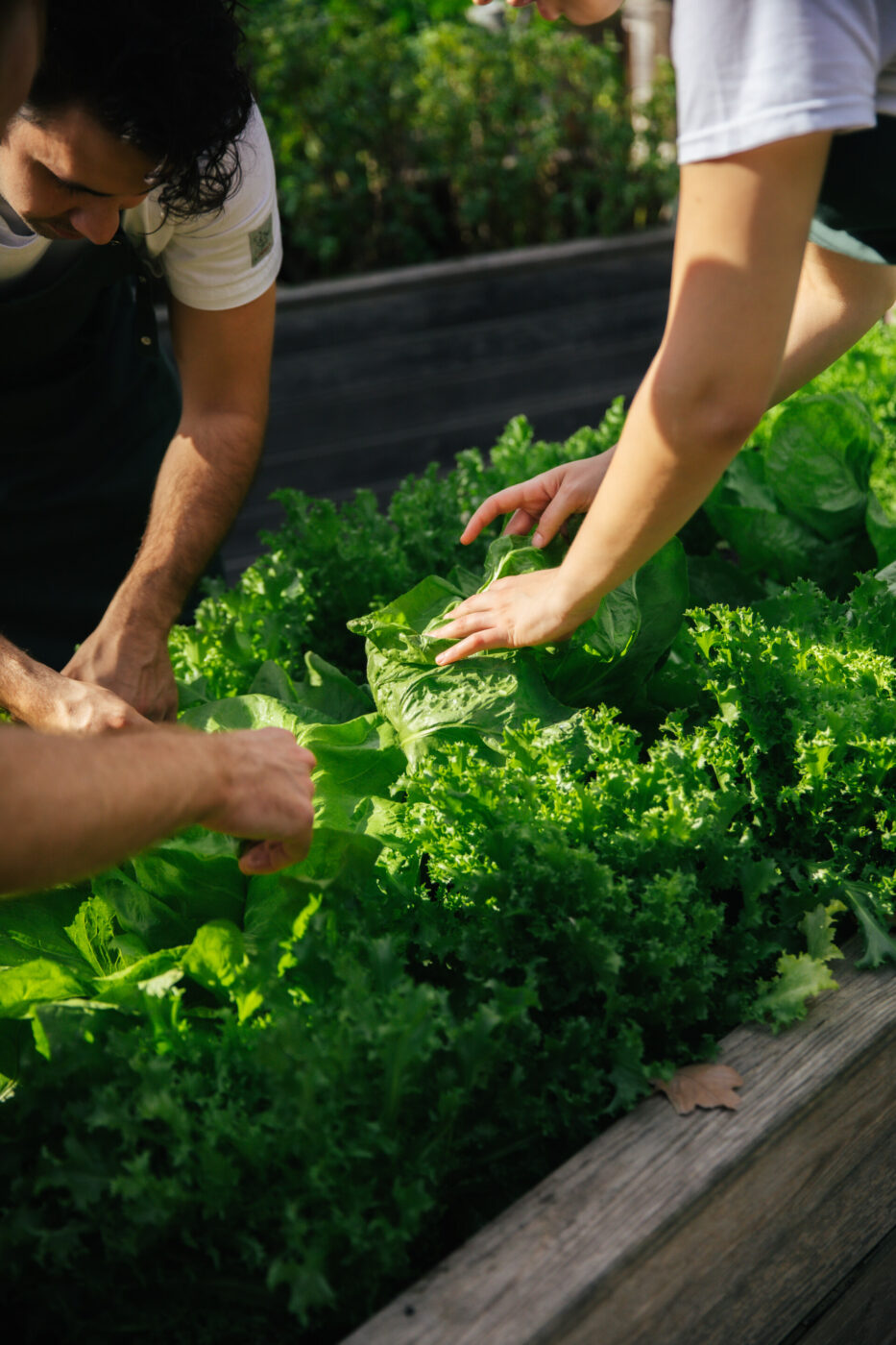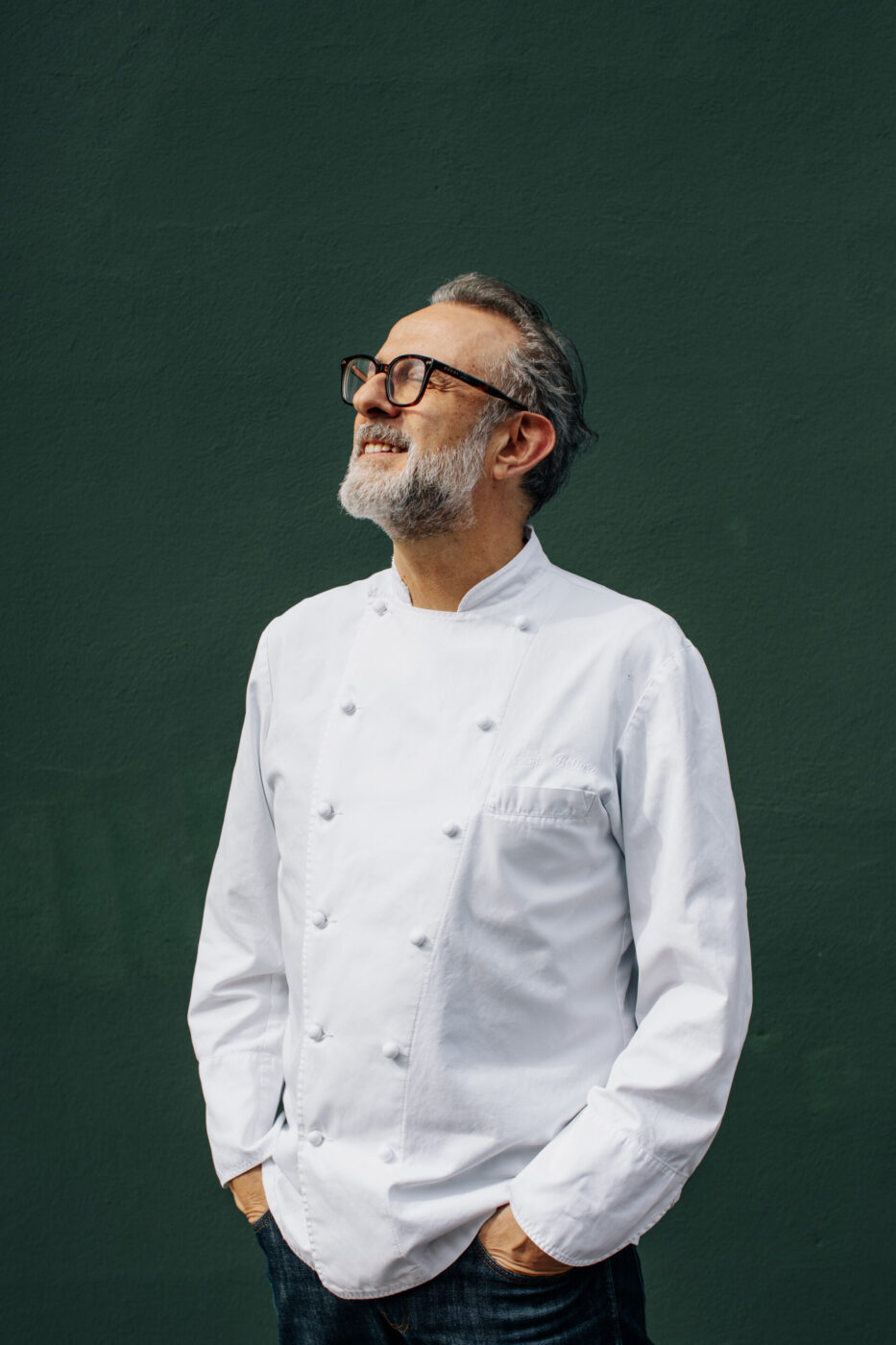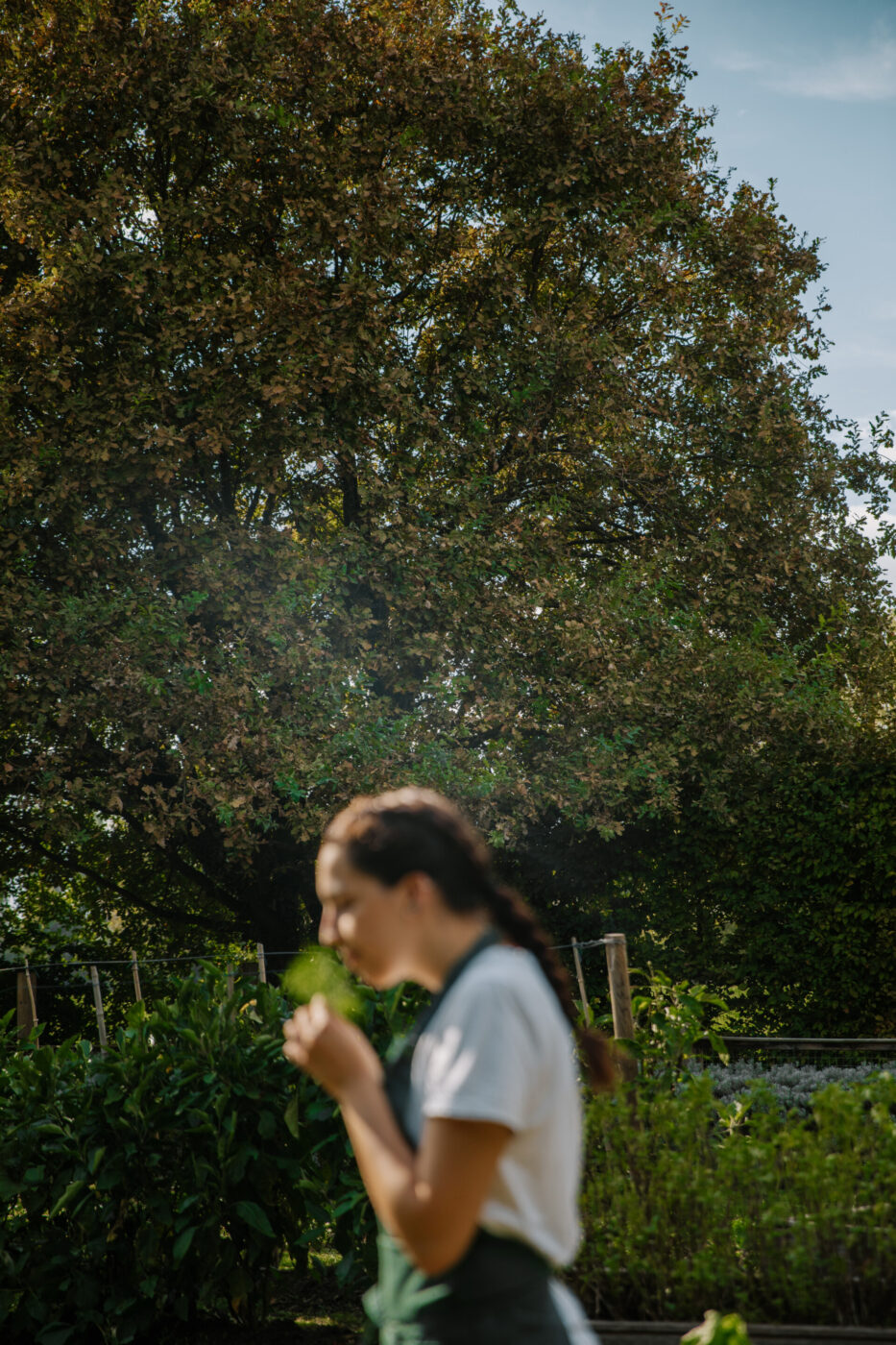Seasonal ingredients, local producers, zero-waste from peels and stems. For years, the storytelling around sustainability in haute cuisine was frozen in the idyllic image of chefs in white jackets sniffing herbs as they wandered through gardens—strictly their own—before heading to the stove. At first, the debate focused on raw ingredients; then, in recent years, attention turned to labor rights, more humane working hours, finances, and economic hardship. In Italy, ecological, economic, and human sustainability have taken turns as the dominant narratives in the food industry—first concerned with ideals, shifting to the struggle to stay afloat, and only then daring to imagine a future beyond the present generation.
Rivers of words have been said and written about culinary research, service, and decor, but very little about the ultimate goal of these activities: to nourish guests. The non-profit organization Food for Soul, founded by Massimo Bottura—the famed three-star Michelin chef—and his wife Lara Gilmore, begins again from here: the soul. It’s a project they’ve been working on for 10 years, since 2015 and Expo Milano, an international fair themed “Feeding the Planet.” Dozens of restaurants were expected to feed thousands of visitors. Where would all the uneaten food go? Bottura asked a simple question that turned into a collective call to action: cook it. Thus, the first Refettorio (social kitchen) was born in an abandoned theater, open to the needy and serving food scraps and surpluses, thanks to 50 international chefs (like Alain Ducasse, Yannik Alléno, Daniel Humm, and Mauro Colagreco) and hundreds of citizen volunteers over the course of six months.
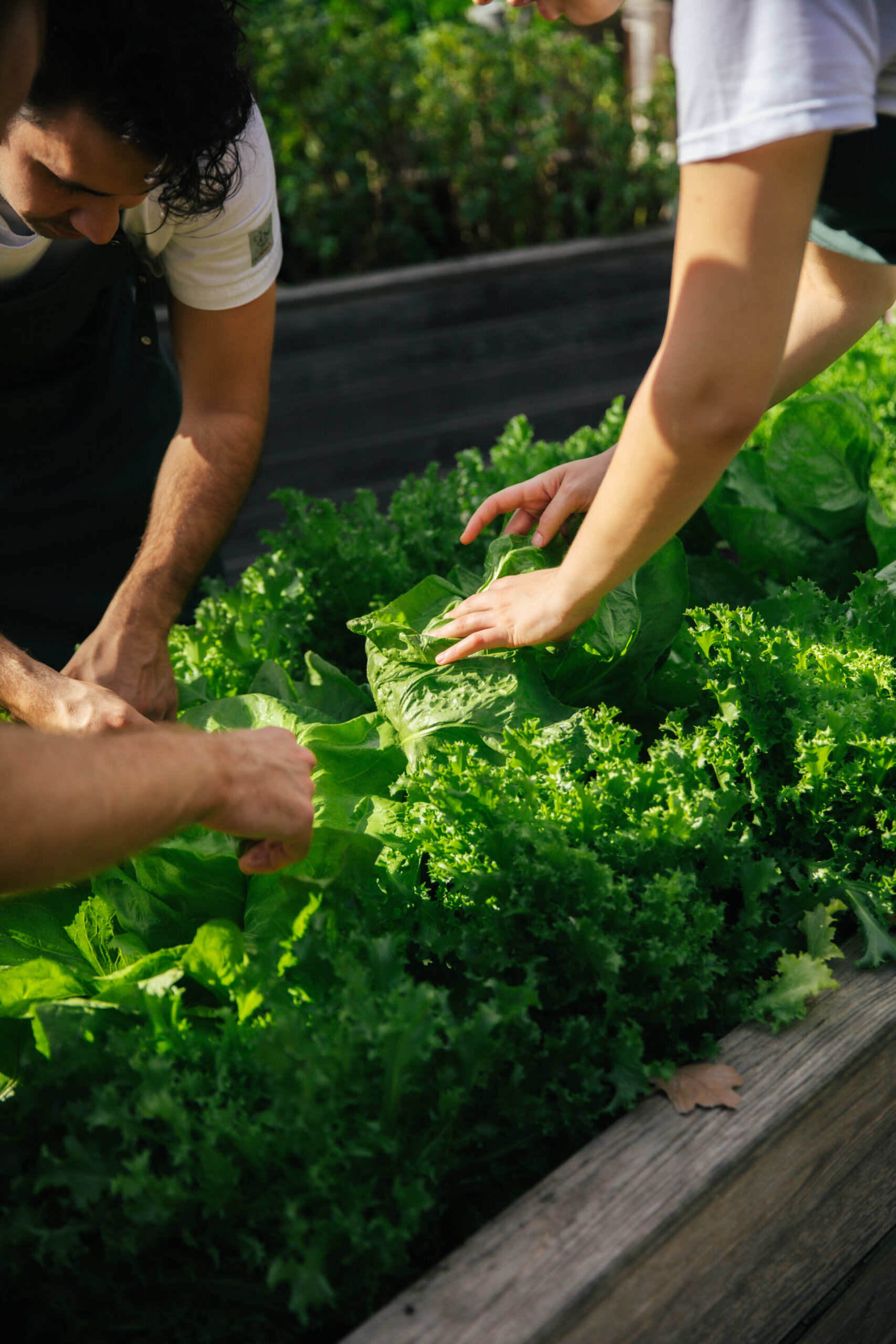
“The response was unexpected, overwhelming,” says Laura Cavicchioli, who leads communication efforts for what would become Food for Soul.
Bottura’s founding question revealed an urgent issue, far bigger than one event—it challenged how we produce, consume, and waste food globally. Refettorio Ambrosiano started a conversation and became a model replicated in vastly different places—from Rio de Janeiro to London. But please don’t call it a soup kitchen, the team urges.
Though originally conceived as a temporary project for Expo 2015, Refettorio Ambrosiano is still going strong—last year alone, it served 27,000 free meals, saved 55 tons of food from waste, and brought together nearly a hundred volunteers. The Refettorio, in a suburban neighborhood behind Milan’s central station, has evolved into a vibrant, welcoming space—furnished with design pieces, lined with contemporary art. Inside, bruised fruit and stale bread are transformed into thoughtful, nourishing meals that feed more than just the body. Gelato made with second-grade fruit, broth out of Parmigiano rinds, various iterations of vegetable soups using unsellable produce—all stylishly plated. The goal isn’t merely meeting caloric needs, but creating a new sustainable value system for the community, where what we see as marginal—whether food or people—returns to the center.
Lara Gilmore, President of Food for Soul, explains, “As Massimo and I always say, it’s a refettorio, from the Latin reficere: to restore. It’s a place where you’re invited to share a meal—and not just food, but also conversation, the exchange of thoughts, ideas, feelings, life experiences, and culture.”

Lara Gilmore and Massimo Bottura
What does it mean to be fed when everything else feels like it’s falling apart? Sometimes, a hot meal is more than the sum of its parts. As Laura tells me—echoing a phrase frequently used by Massimo—“Food for Soul isn’t a charity; it’s a cultural act.” It’s a sentiment that captures the project’s deeper mission: to offer hope, dignity, and a sense of belonging through the rediscovery of hospitality and a space where those in need feel good, accepted, and respected.
Ten years in, the Refettorio’s community model poses a new question—one that reaches far beyond the city limits of Milan: what kind of future do we want to build, and who gets to feel at home in it?
“Chefs influence global food trends,” Massimo Bottura tells me, “and in the future they must understand that cooking is a cultural act that generates awareness, knowledge, and responsibility. It creates a domino effect.”
“The hope is that by fighting waste, practicing sustainability, and building more equitable food systems, the public will learn to make better choices,” he continues. “Sharing these ideas and values creates a global movement—that’s the only way to create a better future for all of us.”
While Massimo speaks to global transformation, he and the team also find revolution on the intimate, human scale. Food for Soul is activism through beauty, they argue—even when beauty seems like a luxury instead of a need. Massimo and Lara often return to a favorite line from Albert Camus: “Beauty, no doubt, does not make revolutions. But a day will come when revolutions will have need of beauty.”

The duo’s philosophy is that beauty is fundamental to revealing the hidden potential of things, places, and people. Whether through art, design, music, a dish, or an act of kindness, Massimo and Lara believe beauty can uncover the poetry in everyday life. “It’s the most powerful means of giving new value to abandoned spaces, new dignity to society’s most vulnerable, and turning humble ingredients into nourishing, delicious meals.”
From Milan to Mexico, through Rio, San Francisco, Paris, and London, the Refettorio model has spread across the globe, developed with highly diverse local partners in ways that could be called “site-specific” by art-world standards. But how Italian is this project, really?
Lara, an American who has made a home in Modena, brings a perspective that bridges both worlds. “Italian-ness is at the heart of this project,” she says, citing reverence for quality local ingredients, the weight of tradition, and a creative spirit that infuses even the simplest dishes—foundations shared by both Italian cuisine and Food for Soul’s. “The approach to ingredients mirrors that of any Italian family kitchen: simple but intentional, respecting seasonality and territory.”
As for hospitality, there’s nothing more Italian than making a guest feel at home. “Food for Soul embodies all of this, bringing it to a universal context where anyone, no matter where they’re from, can feel part of a family,” Lara tells me.
And that idea of family—growing, nurturing, and sharing—is perhaps the most enduring, and human, model of sustainability we have.
“I see more young people aware of their responsibilities than I was at their age,” Bottura concludes. “And that gives me hope—it’s what keeps me going, more than ever, because it’s time to stop talking and start acting. No more excuses.”
